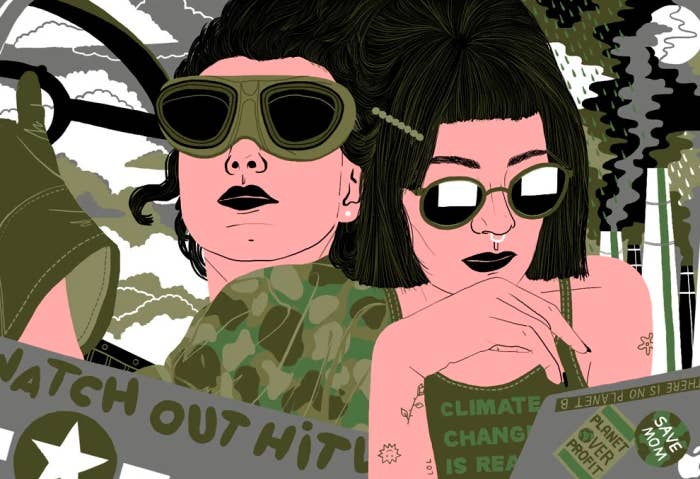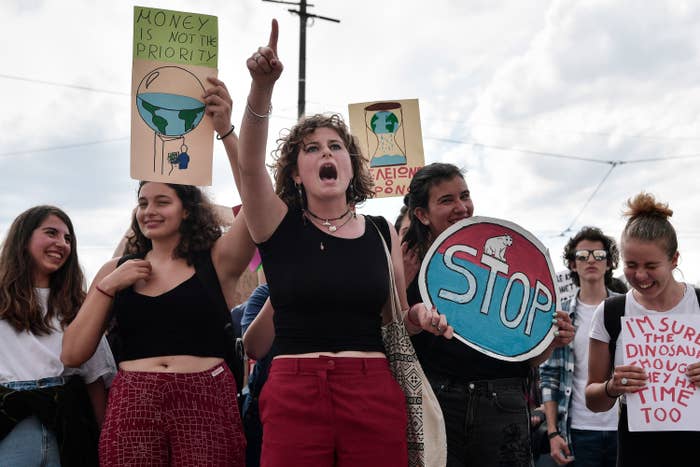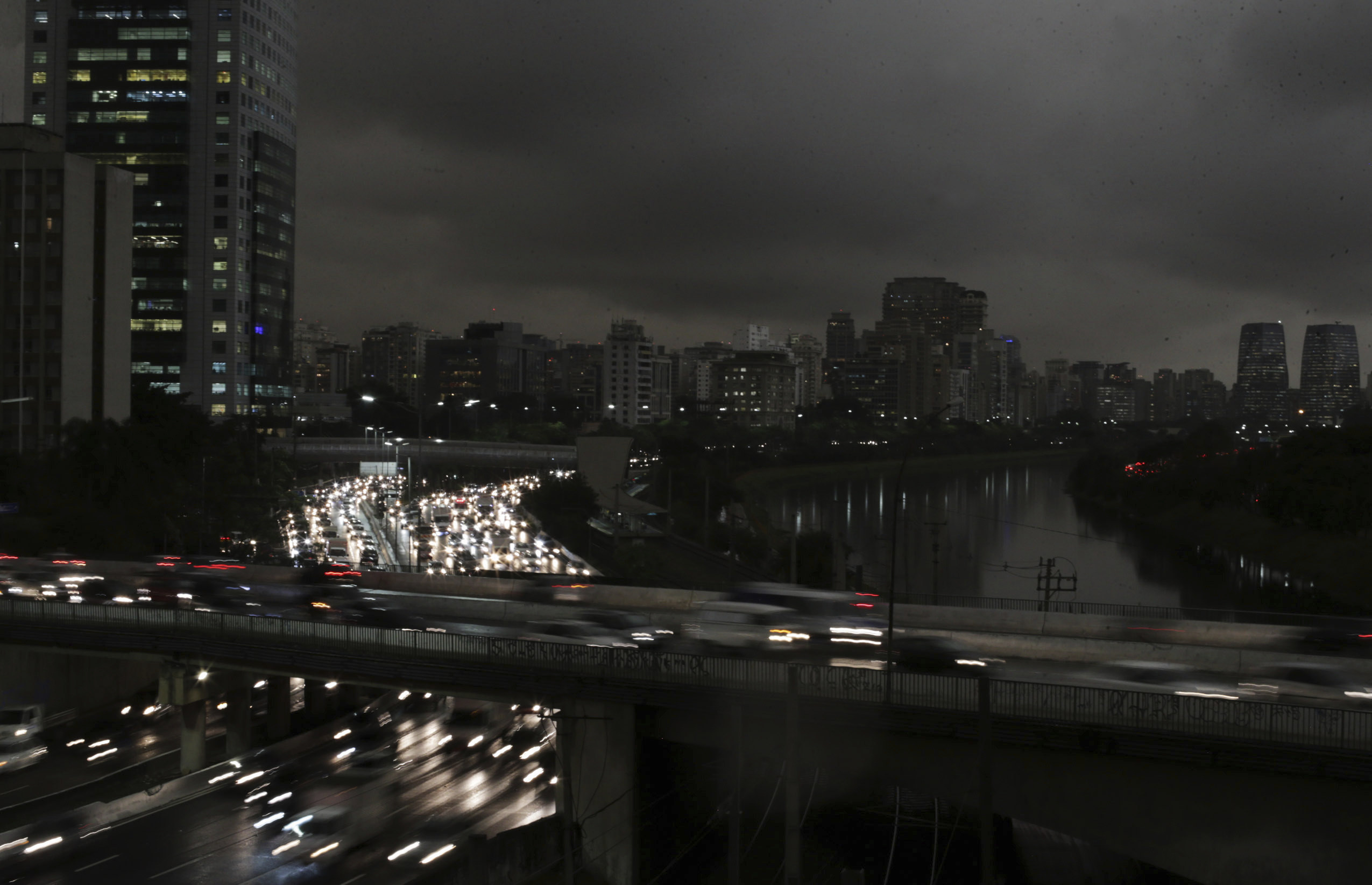
My father, a proud Air Force colonel, often waxed nostalgic about the “Greatest Generation” — the men and women who showed such valor in World War II. His uncle, an airplane gunner, was shot down and killed near Japan. His dad was one of only nine in a battalion of more than 300 men to survive the devastating Battle of Anzio in 1944.
My dad was right to highlight the Greatest Generation. But he was wrong to say there will never be another one like it.
The Greatest Generation didn’t grow up in an environment of superhuman virtue. Racism, sexism, and anti-gay sentiment were all demonstrably worse in the 1930s and ’40s. But what they did achieve, after a difficult national debate, was clarity and resolve about the need to address a collective emergency — the existential threat that fascism posed to all of human civilization. The time bomb was ticking, and they rose to the occasion.
We’re now witnessing the emergence of a new generation of equal moral importance: a Greatest Generation 2.0. This generation is seeing with clear eyes that they are living through yet another existential crisis that threatens all life on Earth: a global climate emergency, and one that too many of their elders have chosen to ignore or deny. But as the seas rise, so will this cohort of young people. The best thing the rest of us can do is to help them win.

The climate emergency is a new kind of war that will need to be fought by a new global alliance. “If we lose,” Bill McKibben wrote in the New Republic in 2016, “we will be as decimated and helpless as the losers in every conflict — except that this time, there will be no winners.”
The fight ahead has become even clearer since then. Climate change used to be covered mainly in academia, with mathematical models and photos of remote glaciers. Now we only need to look out our windows. June was briefly the hottest month ever recorded on Earth until July bested it with even more severe heat waves. Also in July, Chennai, a city of 5 million, almost ran out of water due to drought. This week, fires burning throughout the Amazon were so severe that São Paulo, Brazil’s largest city, was almost pitch black in the middle of the day.

The last time the world faced a threat this severe, the United States led a multinational alliance to destroy it. This time around, our government has locked arms with countries committed to preventing action. President Trump is rolling back every environmental regulation he can get his hands on, and his authoritarian allies in Brazil, Russia, and the Middle East are right there with him. Humans might not win this war.
But there’s no Thanos without the Avengers. And as this defeatist alliance insists on avoiding the fight, a new Greatest Generation is forming before our eyes.
The generals of this peaceful brigade are leaders like Yola Mgogwana, an 11-year-old in Cape Town, South Africa. Frustrated by the heat waves and mudslides wreaking havoc on her neighbors, Mgogwana speaks at schools all over her city about climate change, inspiring many even younger than her to become activists. There’s 19-year-old Xiuhtezcatl Martinez, an indigenous hip-hop artist and activist who has spoken to the UN on environmental policy and is one of 21 young people suing the federal government for knowingly sacrificing their futures by failing to act on climate change. There’s Dylan D’Haeze, a 16-year-old from Washington state who is finishing the fourth documentary in his award-winning series, Kids Can Save the Planet, and Felix Finkbeiner, a 21-year-old from Munich who, at age 10, founded Plant-for-the-Planet, an initiative that aimed to plant a million trees.
It has planted 14 billion so far, in 130 countries, and trained tens of thousands of young people to be climate activists in their hometowns. And of course, there’s Greta Thunberg, the 16-year-old Swede who single-handedly started the global school strike for climate movement. People teased her for sitting alone outside the Swedish Parliament, arguing it was a waste of time to study for the future if there won’t be one. But her moral clarity has inspired 1.5 million students in 125 countries to strike with her — all of them pressuring their governments to adopt 100% clean energy.
Thunberg may be grabbing the most headlines, but millions of young people from this new Greatest Generation are willing to fight and sacrifice to secure their future. And they’re savvy about their most powerful weapon — their voices.
We’re going to need more than just social media chatter to save our future. But let’s think back to the lessons of World War II. Remember that the United States took a painfully long time to realize the true threat — and to overcome the chorus of isolationism and outright Nazi sympathy at home. The right voices won that argument, and the rest is history.
The US could once again tip the global scales and lead a victorious coalition in this climate emergency. It will require overcoming the voices at home who would rather look away, and lose the war, than do the right thing and win. It will also require a new Greatest Generation — and luckily, we have one.
Jaimal Yogis is an author and journalist whose work has appeared in the Atlantic, the Washington Post, and ESPN the Magazine. His forthcoming graphic novel series with Vivian Truong, City of Dragons, is a fantasy tale that incorporates climate change.
CORRECTION
Bill McKibben’s name was misspelled in an earlier version of this post.
